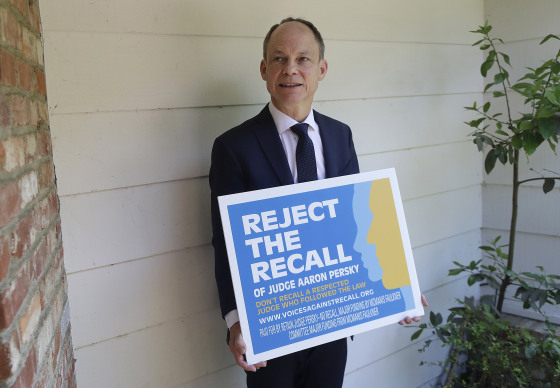in 2015, Stanford undergraduate Brock Turner sexually assaulted an unconscious woman. It is a disgusting crime and one worthy of our universal condemnation and disdain.
The maximum sentence for Turner’s crimes was 14 years in prison. Turner's probation officer recommended a much more lenient sentence including less than a year in county jail. The prosecutor in the case asked that Turner be sentenced to six years in prison.
But Superior Court Judge Aaron Persky, a former prosecutor who has served as a California judge for 15 years, sentenced Turner to six months in jail and three years on probation. Turner also had to register as a sex offender for life. This means Turner will not be allowed to live within 1,000 feet of playgrounds or schools and those living close to him will be notified of his status.
Enraged by this decision and moved by the anonymous victim’s powerful statement, a push to recall Judge Persky from the bench quickly gained steam. It now appears that effort was successful.
I do not support Persky’s sentence in this case. It is too light. It is also entirely legal and absolutely within Persky’s discretion.
I do not support Persky’s sentence in this case. It is too light. It is also entirely legal and absolutely within Persky’s discretion. He looked at the various factors weighing for and against a harsher sentence. He considered the fact that Turner had not committed any prior crimes and thought Turner did not pose a future danger to others.
But barring illegal or unethical behavior, it is almost always be a mistake to recall a sitting judge. It is problematic enough that we elect some judges; the threat of a possible recall introduces yet another worrisome layer into the judicial process. Judicial elections infuse the judicial process with negative political and therefore majoritarian pressure. The ability to recall a judge compounds that pressure.
California superior court judges can be appointed by the governor or elected by the people. Regardless of how they obtained their position, they serve six-year terms and only appear on the ballot if they are challenged in the next election. If they are not challenged, their names do not appear on the ballot and they retain their jobs automatically.
From the bench, superior court judges oversee everything from landlord tenant disputes to murder trials. They must thoughtfully exercise their discretion when and where they can. Sometimes it is a judge’s role to make a decision that protects an unpopular person or group. It should not be the role of a judge to consider how her decisions will play in the next election cycle and whether her decisions are politically popular.
It should not be the role of a judge to consider how her decisions will play in the next election cycle and whether her decisions are politically popular.
Lawmakers, by contrast, are supposed to serve as representatives of their constituents. So while it makes sense to elect lawmakers, the same cannot be said of electing judges.
In addition, most people know next to nothing about the judges who they vote for. There are few resources available, even for the minority of civically engaged voters who might want to research their candidates. Many voters base their votes on things like the candidate’s job title or even just their name. These are not necessarily good proxies to determine who will be a good judge (or a good anything for that matter.)
But as problematic as judicial elections are, they do provide the public with a safety valve through which to remove judges. If the public truly thinks a judge is not fit to serve, a challenger can run against and perhaps oust that judge.
That is not what happened to Persky. Instead, voters employed the nuclear option and voted a judge who legally exercised his discretion out of office in the middle of his term.
The idea behind direct democracy is that it empowers the voters and allows the voters to step in when the normal legislative or electoral processes have failed.
The recall is supposed to be one lever in our system of direct democracy. Other aspects of direct democracy include the initiative process, which allows voters to bypass lawmakers and directly enact new laws, and the referendum, which allows voters to overturn duly enacted laws. The idea behind direct democracy is that it empowers the voters and allows the voters to step in when the normal legislative or electoral processes have failed.
But again, there was no such failure in this case. Persky imposed a lenient, but not illegal, sentence.
The last time a California judge was recalled was in 1932. It strains common sense to believe that, eight decades later, other judges will not be aware of why and how Persky lost his job. Judges could, consciously or not, worry about imposing relatively lenient sentences for fear of a public backlash. That could have the unintended consequence of hurting some, including minority defendants, who many in the criminal justice reform community actually want to help.
Again, an argument against the recall is not necessarily an argument in favor of Brock Turner’s sentence. This is a question of judicial independence. It is about wanting judges to be free to do their jobs, a task that often involves protecting the minority’s rights without worrying about the majority’s will.
Ultimately the vote to recall Judge Persky is not just a loss for Judge Persky, it is a loss for the integrity of the judicial system.
Jessica A. Levinson is a professor at Loyola Law School, Los Angeles and president of the Los Angeles Ethics Commission. She tweets at @LevinsonJessica.

